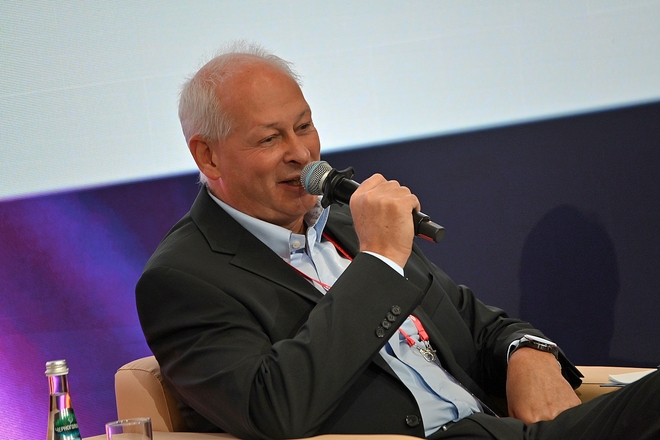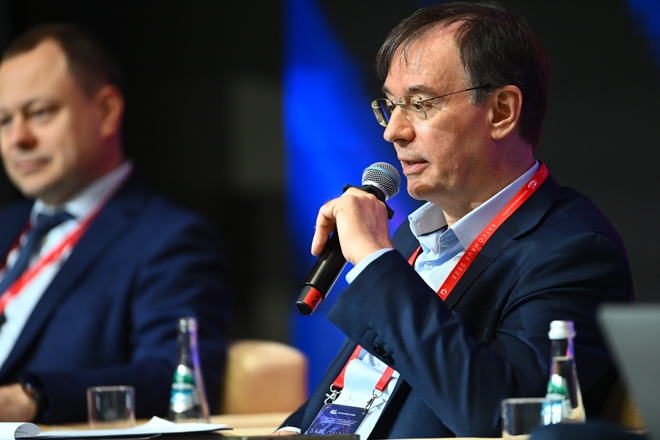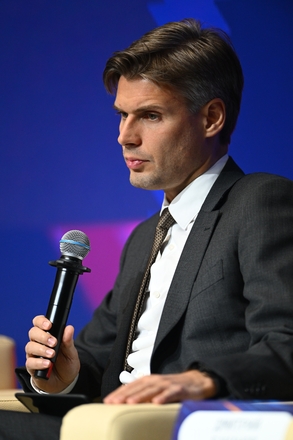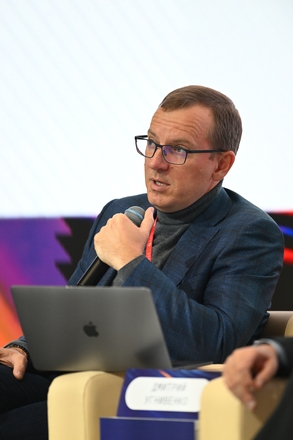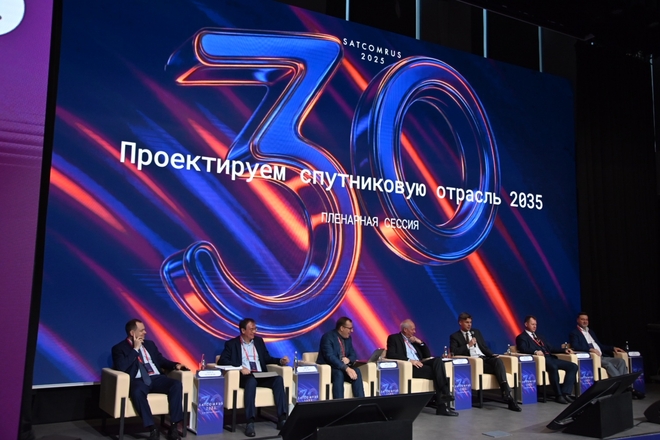Continuity and compatibility: RSCC General Director Alexey Volin discussed the company's goals and the industry's prospects at SATCOMRUS 2025
By the end of 2030, eight satellites of RSCC will reach the end of their operational life, and eight satellites are scheduled to replace them. During this process, the company intends to adhere to the principle of continuity and compatibility, while maintaining all orbital slots and frequencies currently held by the Russian Federation. Alexey Volin, General Director of RSCC and Chairman of the Industrial Competence Center (ICC) "Satellite Communications" spoke about this at the SATCOMRUS 2025 conference, outlining the main goals of the space communications industry as a whole and the company in particular for the coming years. The event, organized by RSCC, took place on October 2 in Moscow.
"It is important for us that clients currently using existing networks can automatically switch to the new satellites. Continuity in this regard is crucial; otherwise, our customers will suffer, which we absolutely cannot allow," explained Alexey Volin. He added that receiving equipment must be developed to be more portable, compact, and flexible. In the coming years, spacecraft will be mass launched into low orbits, so it's essential to ensure that users can receive services from multiple operators on a single device.
An equally important goal is to improve the quality of spacecraft components, stated General Director of RSCC: "Initially, in the context of development of sovereign technologies, the primary objective was just to produce something domestically produced. But, of course, these solutions must be made competitive, comparable to global counterparts, and ideally, superior."
Other challenges facing the industry include reducing the time it takes to create satellites, extending their operational lifespan, and reducing the cost of both spacecraft manufacturing and launches. "Because expensive launches and satellites development are a very high barrier, preventing many from entering the market," concluded Alexey Volin.
At the same time, the opportunities offered by any of the four orbits (geostationary, medium-earth orbit, low-earth orbit, and highly elliptical) must not be overlooked. All of these orbits must address critical niches and the country's telecommunications needs. This was the point made by Dmitry Bakanov, General Director of Roscosmos. According to him, the Russian market is currently undergoing rapid transformation. On the one hand, as Alexey Volin previously mentioned, eight Express-series satellites will be operational by 2030 as part of the national "Cosmos" project. Highly Elliptical Orbit (HEO) communications for the Arctic zone (four Express-RV satellites), a relay system consisting of four "Luch" geostationary (GEO) satellites, and a low-Earth orbit (LEO) constellation are being developed. Speaking about the GEO and LEO constellations, Dmitry Bakanov noted that the total throughput of launched satellites will increase by 16 times, which is in line with the national project targets.
Dmitry Ugnivenko, Deputy Minister of Digital Development, Communications, and Mass Media of Russia, emphasized the need to preserve the country's orbital and frequency resources. "The timely production and launch of satellites is extremely important to us, and any delays in schedules are unacceptable in most cases. We must focus on cooperation, implement precise planning, and reserve capacity where possible, fulfilling our obligations on time," he emphasized.
At the same time, Yuri Urlichich, Adviser to General Director of RSCC, Chairman of the Council of the Association of Satellite Communications Market Players, continued, that it is crucial not to make mistakes and not lose frequency positions, as well as to ensure synergy across all constellations. "Only this combination in space, with the collaboration of capabilities available on Earth, alone will yield a 3% increase in productivity and a 2.1% increase in GDP by 2035. If even one element is missing, it's not a given that we'll be able to achieve these figures," concluded Yuri Urlichich.
TASS News Agency is the event's general media partner.
